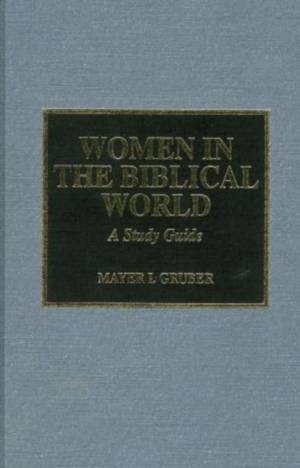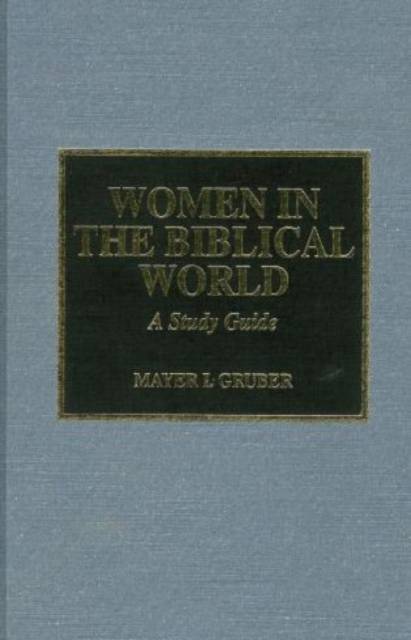
- Afhalen na 1 uur in een winkel met voorraad
- Gratis thuislevering in België vanaf € 30
- Ruim aanbod met 7 miljoen producten
- Afhalen na 1 uur in een winkel met voorraad
- Gratis thuislevering in België vanaf € 30
- Ruim aanbod met 7 miljoen producten
Zoeken
Women in the Biblical World
A Study Guide, Vol. I: Women in the World of Hebrew Scripture
Mayer I Gruber
€ 106,45
+ 212 punten
Omschrijving
"Women's history" has emerged as an independent discipline because women have been written out of the history of Western civilization as commonly taught and researched. Likewise, feminist interpretation of the Bible (often called feminist hermeneutics) grew out of the realization that conscious and unconscious sexism had often led scholars and students to ignore and even obscure the substantial role of women and womanhood in Hebrew Scripture. Women in the Biblical World provides scholars, clergy, seminarians, college students, and others with access to books and articles--both technical and semi-popular--that shed light on the role of women in Hebrew Scripture. The guide demonstrates that the study of women and womanhood in the biblical world has assumed special importance during the two great periods of struggle for women's rights--the 1890s and the last quarter of the 20th century. However, this guide also demonstrates that the public role of women and womanhood in the ancient Near East was so great that scholarship has never been able to ignore it.
Specificaties
Betrokkenen
- Auteur(s):
- Uitgeverij:
Inhoud
- Aantal bladzijden:
- 298
- Taal:
- Engels
- Reeks:
- Reeksnummer:
- nr. 38
Eigenschappen
- Productcode (EAN):
- 9780810830691
- Verschijningsdatum:
- 14/11/1995
- Uitvoering:
- Hardcover
- Formaat:
- Genaaid
- Afmetingen:
- 164 mm x 232 mm
- Gewicht:
- 489 g

Alleen bij Standaard Boekhandel
+ 212 punten op je klantenkaart van Standaard Boekhandel
Beoordelingen
We publiceren alleen reviews die voldoen aan de voorwaarden voor reviews. Bekijk onze voorwaarden voor reviews.











